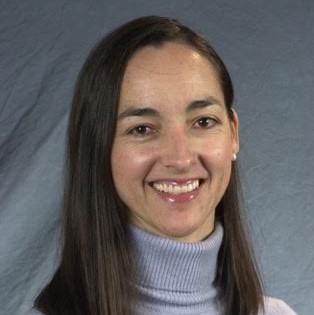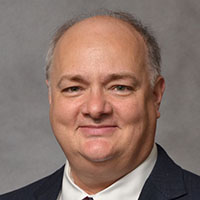Once your neurologist suspects or confirms your diagnosis as Krabbe disease, it’s important to get connected to the right experts. Due to the complexity of this rare disease, it’s likely your care team has never encountered another patient with this condition. It’s imperative that your family member receives the most innovative options for treatment and management of the disease.
The following have been identified as leaders in the care and clinical management of Krabbe disease. As a rare disease organization, we are grateful for each of the below experts whom are well known around the world for their program and can meet the extensive medical needs of patients with Krabbe disease.

Dr. Maria Escolar
Director, Program for the Study of Neurodevelopment in Rare Disorders Children’s Hospital of Pittsburgh of UPMC Associate Professor of Pediatrics at The University of Pittsburgh
Email: maria.escolar@chp.edu
Phone: 412-592-8571
Dr. Maria Escolar is a world-renowned pediatrician, clinical professor, and researcher, specialized in pediatric neurodevelopmental disabilities. She is the Founder and Director of the Program for the Study of Neurodevelopment in Rare Disorders (NDRD) at Children’s Hospital of the University of Pittsburgh Medical Center (UPMC). This clinic offers comprehensive neurodevelopment assessments and treatment plans that span several therapeutic disciplines, ranging from hearing tests to physical therapy and palliative careSpecialized and supportive care for individuals with a serious illness with the goal of offering an improved quality of life, not only for the patient but the family as well. for those affected by Krabbe disease. Dr. Escolar provides clinical services and expertise to more than 150 patients affected by this disease.
In 2010, to keep research moving forward in Krabbe disease, Dr. Escolar formed the Krabbe Translational Research Network (KTRN). The KTRN has successfully brought together many individuals, from a wide range of disciplines and institutions across the globe, to collaborate, share data, and accelerate new treatments or a cure for Krabbe disease. Together, they develop better ways of understanding, diagnosing, and treating Krabbe disease. To read an in-depth review of Dr. Escolar’s training and work, please visit the Children’s Hospital of UPMC.

Dr. Joanne Kurtzberg
Jerome S. Harris Professor of Pediatrics, Director, The Marcus Center for Cellular Cures at Duke University Medical Center
Email: kurtz001@mc.duke.edu
Phone: 919-668-1119
Dr. Joanne Kurtzberg is an internationally renowned expert in pediatric hematologyoncology, pediatric blood and marrow transplantation, umbilical cord blood banking and transplantation, and novel applications of cord blood in the emerging fields of cellular therapies and regenerative medicine. Since 1990 she has served as the director of the Pediatric Blood and Marrow Transplant (PBMT) Program at Duke University Medical Center. The PBMT program has transplanted over 60 patients affected by Krabbe Disease. Dr. Kurtzberg current research is focused on finding ways to use cord blood cells to help children with Krabbe disease and other leukodystrophies. To learn more about Dr. Joanne Kurtzberg please visit Duke University Medical Center.

Dr. Paul Orchard
University of Minnesota – InheritedThe way genes are passed down from one generation to the next. There are many different types of inheritance patterns. Krabbe disease is inherited in an autosomal recessive pattern of inheritance. Metabolic and Storage Disease Bone Marrow Transplantation Program
Email: orcha001@umn.edu
Phone: 612-626-2961
Dr. Paul Orchard is the Medical Director of the Inherited Metabolic & Storage Disease Program and a Professor in the Department of Pediatrics, Division of Blood and Marrow Transplantation at the University of Minnesota. The program, based at the Pediatric Specialty Care Journey Clinic, is routinely recognized as one of the most experienced for treating severe rare genetic diseases. He is interested in the use of hematopoietic stem cell transplantation (HSCTHematopoietic stem cell transplantation (HSCT), a type of transplantation using multipotent hematopoietic stem cells typically derived from bone marrow, peripheral blood, or that from umbilical cord b) and other cell therapies for inherited metabolic diseases, as well as combination therapy to improve outcomes. He also has been exploring methods to modify the transplant process to decrease the toxicity associated with transplant, as well as the use of gene therapyA type of therapy that offers hope and promise for a cure for many genetic disorders. A working copy of the gene replaces the non-working copy of the gene. Gene therapy is at the forefront of many approaches. More information about Dr. Orchard, his education and research can be found by visiting the Pediatric Blood and Marrow Transplant Center at the U of MN.

Dr. Paul Szabolcs
Chief, Division of Blood and Marrow Transplantation and Cellular Therapies Professor, Pediatrics, University of Pittsburgh School of Medicine
Email: paul.szabolcs@chp.edu
Phone: 412-692-6225
Dr. Paul Szabolcs is the Chief of Pediatric Transplantation and Cellular Therapies division at the Children’s Hospital of the University of Pittsburgh Medical Center (UPMC). Dr. Szabolcs has completed many cord blood transplants on patients with Krabbe disease at UPMC, the youngest being just a few weeks old. He is currently designing and testing reduced-toxicity transplantation regimens for patients with life-threatening inherited conditions that lead to bone marrow failure in neurodegenerative conditions like Krabbe disease. To learn more about Dr. Szabolcs training and research at UPMC, please visit The Center for Rare Disease Therapy.


